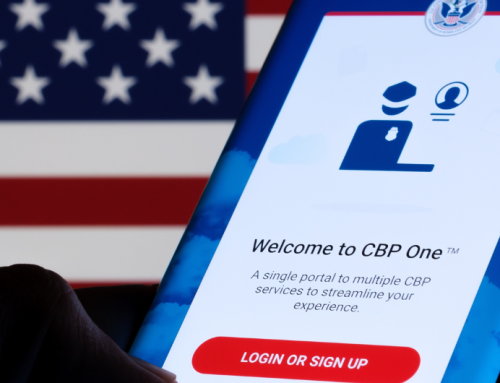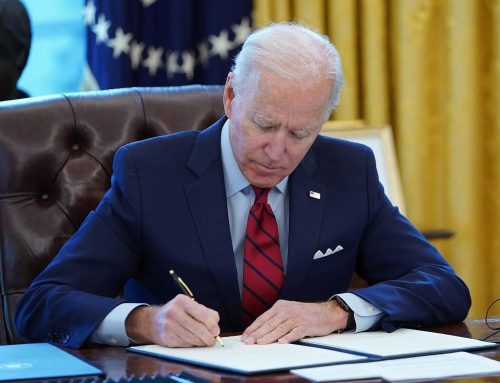
investor
E-1 Treaty Trader Visa and E-2 Treaty Investor Visa
As the world’s largest economy, the United States has always been an attractive destination for foreign investors looking to expand their businesses or explore new opportunities. In today’s blog, we will be delving into a recent topic that has gained significant attention: E-1 Treaty Trader and E-2 Treaty Investor Visas in the USA. So, if you’re interested in learning more about these types of visas, benefits, and the eligibility requirements for each, you’ve come to the right place. Please keep reading to discover how our law firm can help you achieve your immigration goals and take the first step towards a brighter future in the land of opportunity.
The E-1 and E-2 visas are nonimmigrant visas that allow foreign nationals to enter the United States to develop and direct their business.
E-1 Treaty Trader Visa
E-1 Treaty Trader Visa allows the visa holder to enter the United States for international trade, including selling goods, services, or technology between the U.S. and their home country. There is no minimum investment requirement, but it is necessary to demonstrate that the trade is substantial.
The countries currently eligible for E-1 Treaty Trader Visa are:
Argentina, Australia, Austria, Belgium, Bolivia, Bosnia and Herzegovina, Brunei, Canada, Chile, China (Taiwan), Colombia, Costa Rica, Croatia, Czech Republic, Denmark, Estonia, Ethiopia, Finland, France, Germany, Greece, Honduras, Iran, Ireland, Israel, Italy, Jamaica, Japan, Jordan, Kazakhstan, Korea (South), Kosovo, Kyrgyzstan, Latvia, Liberia, Lithuania, Luxembourg, Macedonia, Mexico, Moldova, Mongolia, Montenegro, Morocco, Netherlands, New Zealand, Norway, Oman, Pakistan, Panama, Paraguay, Philippines, Poland, Serbia, Singapore, Slovakia, Slovenia, Spain, Sri Lanka, Suriname, Sweden, Switzerland, Thailand, Tunisia, Turkey, Ukraine, United Kingdom, and Uruguay.
E-2 Treaty Investment Visa
E-2 Treaty Investment Visa allows the visa holder to come to the United States to invest in and manage a U.S. business. No fixed minimum investment is required, but generally expected the investment to be at least $100,000. Still, it must be significant enough to create jobs for U.S. workers and generate a profit for the investor. Unlike other nonimmigrant visas, the E-2 visa can lead to Permanent Residency (Green Card) in the United States.
The countries currently eligible for E-2 Treaty Investor Visa are:
Albania, Argentina, Armenia, Australia, Austria, Azerbaijan, Bahrain, Bangladesh, Belgium, Bosnia and Herzegovina, Bulgaria, Cameroon, Canada, Chile, China (Taiwan), Colombia, Congo (Brazzaville), Congo (Kinshasa), Costa Rica, Croatia, Czech Republic, Denmark, Ecuador, Egypt, Estonia, Ethiopia, Finland, France, Georgia, Germany, Grenada, Honduras, Iran, Ireland, Israel, Italy, Jamaica, Japan, Jordan, Kazakhstan, South Korea, Kosovo, Kyrgyzstan, Latvia, Liberia, Lithuania, Luxembourg, Macedonia, Mexico, Moldova, Mongolia, Montenegro, Morocco, Netherlands, New Zealand, Norway, Oman, Pakistan, Panama, Paraguay, Philippines, Poland, Romania, Serbia, Senegal, Singapore, Slovakia, Slovenia, Spain, Sri Lanka, Suriname, Sweden, Switzerland, Thailand, Togo, Trinidad & Tobago, Tunisia, Turkey, Ukraine, and the United Kingdom.
Eligibility Requirements for an E-1 / E-2 Visa
- You have to be a citizen of one of the countries with a commerce and navigation treaty with the United States. It’s always best to check with the U.S. Department of State for the latest information on visa eligibility requirements here.
- You must own at least 50% of the business.
Process for Obtaining an E-1 / E-2 Visa
- Complete Nonimmigrant Visa Electronic Application (DS-160) and pay the fee.
- Schedule and attend an interview at a U.S. embassy or consulate in your home country.
- Provide supporting documents such as proof of nationality, evidence of investment / substantial trade, and a business plan.
- Await visa approval and receive a visa in your passport.
- Enter the U.S. and begin developing and directing your business operations.
The visa holder’s spouse and unmarried children under 21 may also come to the United States under derivative E-1 / E-2 visas. Both visas are renewable indefinitely as long as the trade/investment continues to be substantial.
What kinds of businesses are likely to get approved for a visa?
Some examples of businesses suitable for E-1 / E-2 visas include franchise businesses, consulting and professional services, technology, and software development, real estate and property management, hospitality and food services, retail and wholesale trade, manufacturing and distribution, export and import companies, etc. However, any industry meeting the above requirements could be eligible for a visa.
Can I travel to and from the U.S. with an E-1 or E-2 visa?
Yes, holders of E-1 and E-2 visas can travel to and from the United States. However, it’s important to note that depending on your country of citizenship, you may have to obtain a new visa stamp to return to the U.S. Some countries’ citizens receive limited and one-time E-2 visas, and some receive multi-entry long-term visas. It’s always a good idea to consult with an immigration attorney or the U.S. Citizenship and Immigration Services (USCIS) if you have any questions or concerns about travel while holding your visa.
I.S. Law Firm offers comprehensive services covering every step of the business immigration process. From setting up a business entity and negotiating agreements to drafting contracts and overseeing the entire immigration process for the investor and their family, we are here to assist you. If you want to learn more about our services or schedule a consultation, please contact us at +1-703-527-1779 or [email protected].





